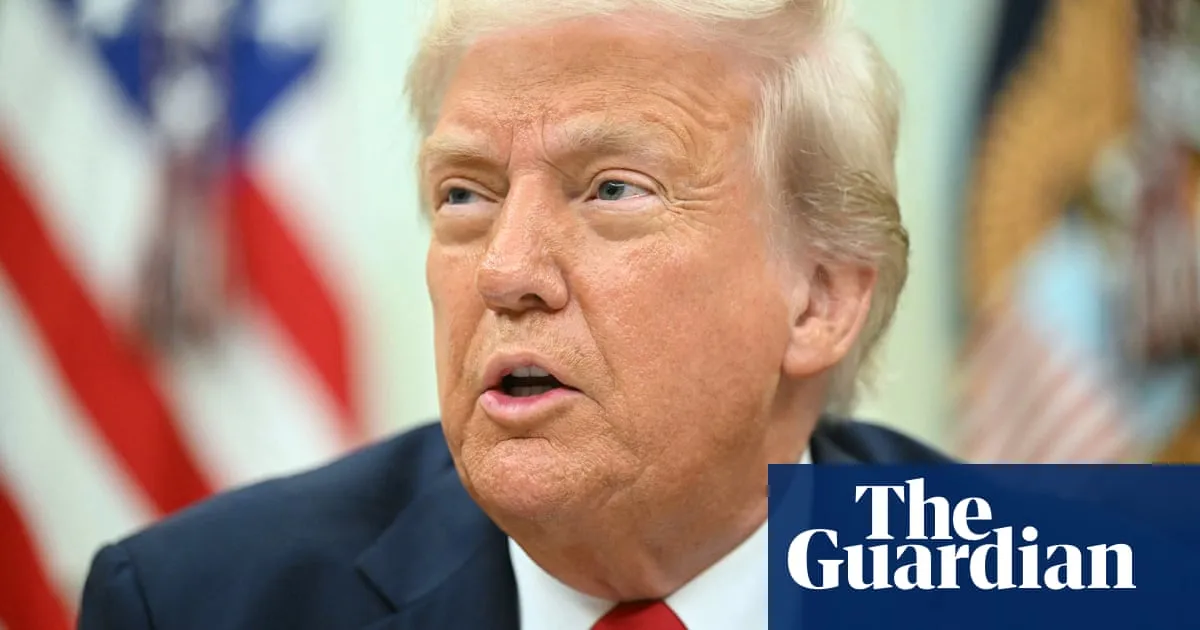
As Donald Trump gears up to unveil a series of reciprocal tariffs, global markets are on edge. Some Republican senators have raised their voices in opposition to this strategy, warning that it could provoke a global trade war and elicit retaliation from major trading partners, including China, Canada, and the European Union. On Monday, the US president announced that he would be “very kind” to trading partners when he reveals further tariffs, potentially as soon as Tuesday night.
Trump believes that reciprocal action is necessary, claiming that the world’s largest economy has been “ripped off by every country in the world.” He referred to the upcoming announcement as “Liberation Day” for the United States. While details remain sparse, Trump hinted at the possibility of introducing more sector-specific levies alongside country-based tariffs. He stated, “You’re going to see in two days, which is maybe tomorrow night or probably Wednesday,” while also reassuring that the tariffs would be “very nice, relatively speaking.”
Several Republican senators have voiced their concerns regarding Trump's tariffs, particularly those affecting Canada. Senator Susan Collins expressed that tariffs on Canadian goods would adversely impact Maine, indicating her intention to support a resolution aimed at blocking these tariffs. Similarly, Senator Thom Tillis mentioned he was considering backing the resolution, emphasizing the need to address disputes with adversaries before turning to allies.
In light of Trump’s anticipated tariff announcements, China, South Korea, and Japan agreed to bolster free trade among themselves. Despite the potential fallout, Trump expressed a lack of concern that his tariffs might drive allies closer to Beijing. He also suggested that a potential deal regarding TikTok could be intertwined with the tariffs on China.
The uncertainty surrounding Trump's tariff plans has caused key European and Asian market indexes to close lower, although the Dow and the broad-based S&P 500 managed to gain slightly. Market anxiety intensified after Trump announced that tariffs would target “all countries.” Reports from the Wall Street Journal indicated that advisers are contemplating global tariffs of up to 20% that would affect nearly all US trading partners. Trump has remained ambiguous, stating that his tariffs would be “far more generous” than those already imposed.
Trump’s focus on tariffs has heightened fears of a recession in the US. Analysts from Goldman Sachs raised their 12-month recession probability from 20% to 35%, citing a “lower growth forecast, falling confidence, and statements from White House officials indicating willingness to tolerate economic pain.” Additionally, Goldman Sachs has adjusted its inflation forecast for 2025 upwards.
In response to US tariffs, China and Canada have already implemented counter-tariffs on American goods, while the EU plans to introduce its own measures by mid-April. Further counteractions could follow after Trump’s announcement on Wednesday. Kristalina Georgieva, head of the IMF, noted that while US tariffs are causing anxiety, their global economic impact should not be overly dramatic.
Economists speculate that the upcoming announcement could target the “Dirty 15,” a group of partners with persistent trade imbalances with the US, as identified by Scott Bessent, the US treasury secretary. The US faces significant goods deficits with nations like China, the EU, Mexico, Vietnam, Taiwan, Japan, South Korea, Canada, and India.
In anticipation of potential repercussions, US trade partners are actively seeking ways to mitigate their exposure. Reports suggest that India may lower some duties. Christine Lagarde, president of the European Central Bank, stated that Europe should strive for economic independence, highlighting the continent's current “existential moment.” Meanwhile, British Prime Minister Keir Starmer reported on “productive negotiations” toward a UK-US trade deal, while German Chancellor Olaf Scholz asserted that the EU would respond firmly to Trump’s tariffs but remains open to compromise.
As the situation unfolds, the potential for swift adjustments to tariffs remains, as seen in previous negotiations when Washington paused steep levies on Mexican and Canadian imports. Observers are left to ponder what Trump's latest tariffs will mean for US trade relations and the global economy.